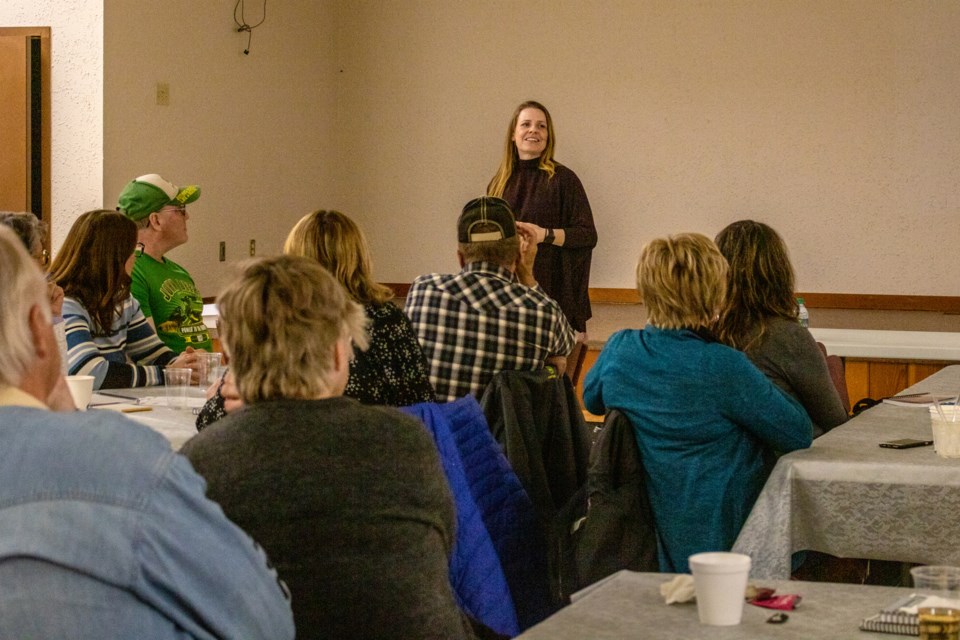ASHMONT - A farmer, blogger, and mental health advocate is shining a light on mental health in agriculture, hoping to get farmers to help one another and break the stigma surrounding the subject.
Farmers are one of the nation’s biggest assets, and right now some of them are hurting, according to Lesley Kelly. Kelley is a farmer based in Saskatchewan and runs a blog called High Heels and Canola Fields. She is also the co-founder of the Do More Agriculture Foundation. On March 12, she spoke to about 75 farmers at the Ashmont Agriplex, in an event organized by the Lakeland Agricultural Research Association. Kelly spoke to local farmers from the area about the importance of mental health and shared tips on how to speak about the topic.
“That’s the first step, and we can do that in the industry to reduce that stigma,” Kelly said.
Kelly began her talk asking farmers in the room to stand if they have lost a family member, friend, another farmer or a loved one in their community to suicide. More than half the room stood up. According to Kelly, Canada does not have statistics on farmer suicides. Referring to statistics from the U.S, Kelly said farmers are two to five times more likely to die by suicide than the rest of the population.
“That’s a hard and startling stat and I’m here to help change those stats,” she said.
Kelly and her husband, Matt, farm on their 6,000-acre family farm, growing a variety of crops. Following the birth of her second son, Lesley faced post-partum depression. Matt would help by relieving her of her tasks, so Kelly could rest. But, after Kelly recovered, Matt began suffering from panic attacks.
“He felt that the only way he could be of value to the family farm is to be the first one up and the last one to go to bed,” Kelly said. “All of that took a toll and he started having panic attacks, in the cab of the tractor...cab of the combine.”
“For you to watch a loved one go through those panic attacks, it was very difficult at the time and I didn’t know what to do."
The only thing she could do at the time was to hug him really tight and get him to focus on her breathing, she said.
Eventually, they decided they would need to do things differently. Communicating with each other was key. The couple shared their fears and thought up solutions that would help them.
“What you have to say both online or offline can make an immense impact on someone else, your words can change a life, (or) save a life,” Kelly said. “And mental health is different for all of us.”
Cost, ego, inconvenience and the stigma are some of the factors that prevent farmers from seeking help. The weather, the markets, labour, pressure, and animal and crop care are all stress-causing factors.
Mental health needs to be spoken about, Kelly stressed, mainly because there are a number of factors outside of the control of producers. It is vital to know the signs and symptoms of somebody going through a difficult time, reach out to them, and listen to what’s going on.
Do More Ag is a not-for-profit organization focusing on mental health in agriculture across Canada.



